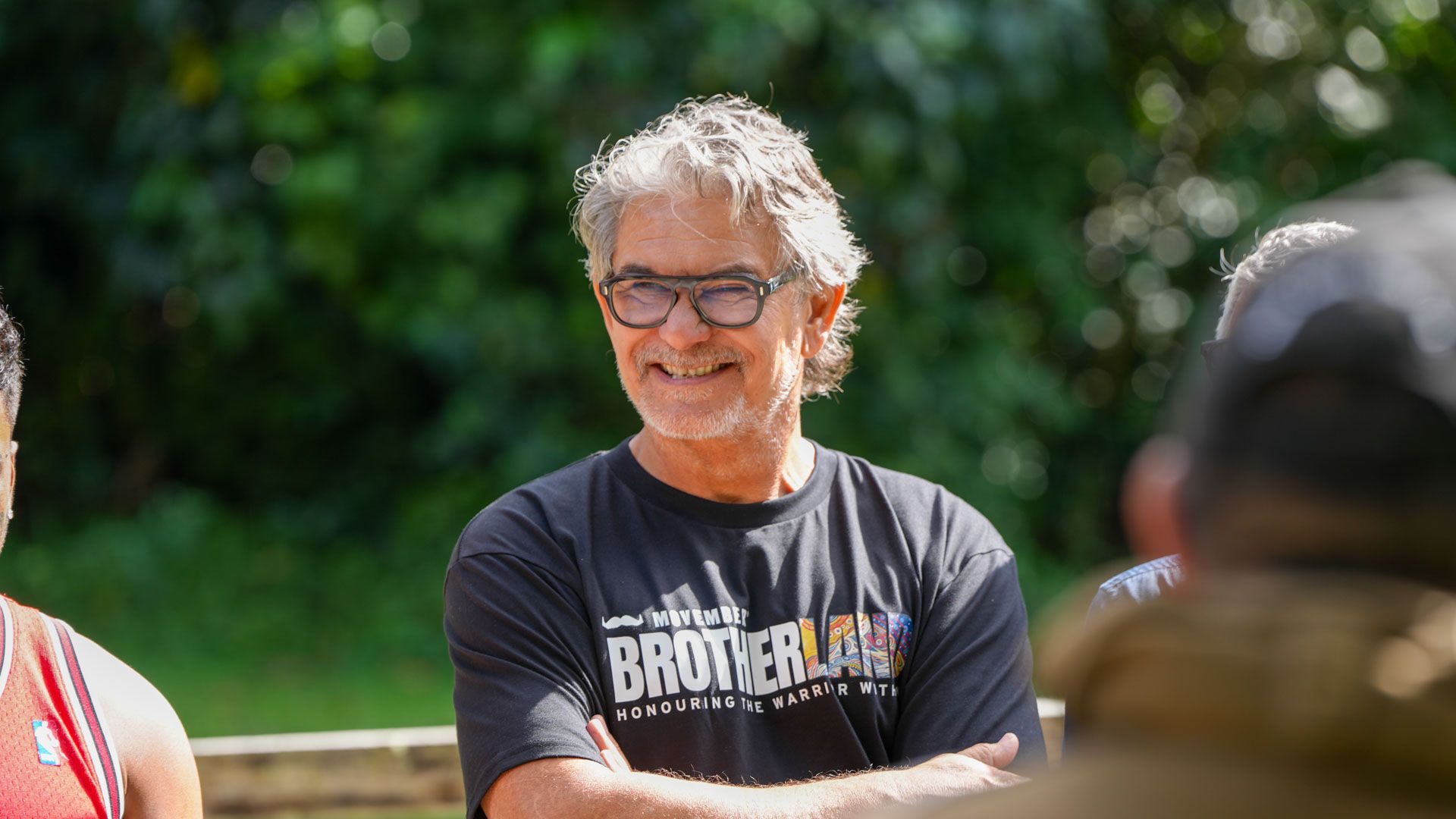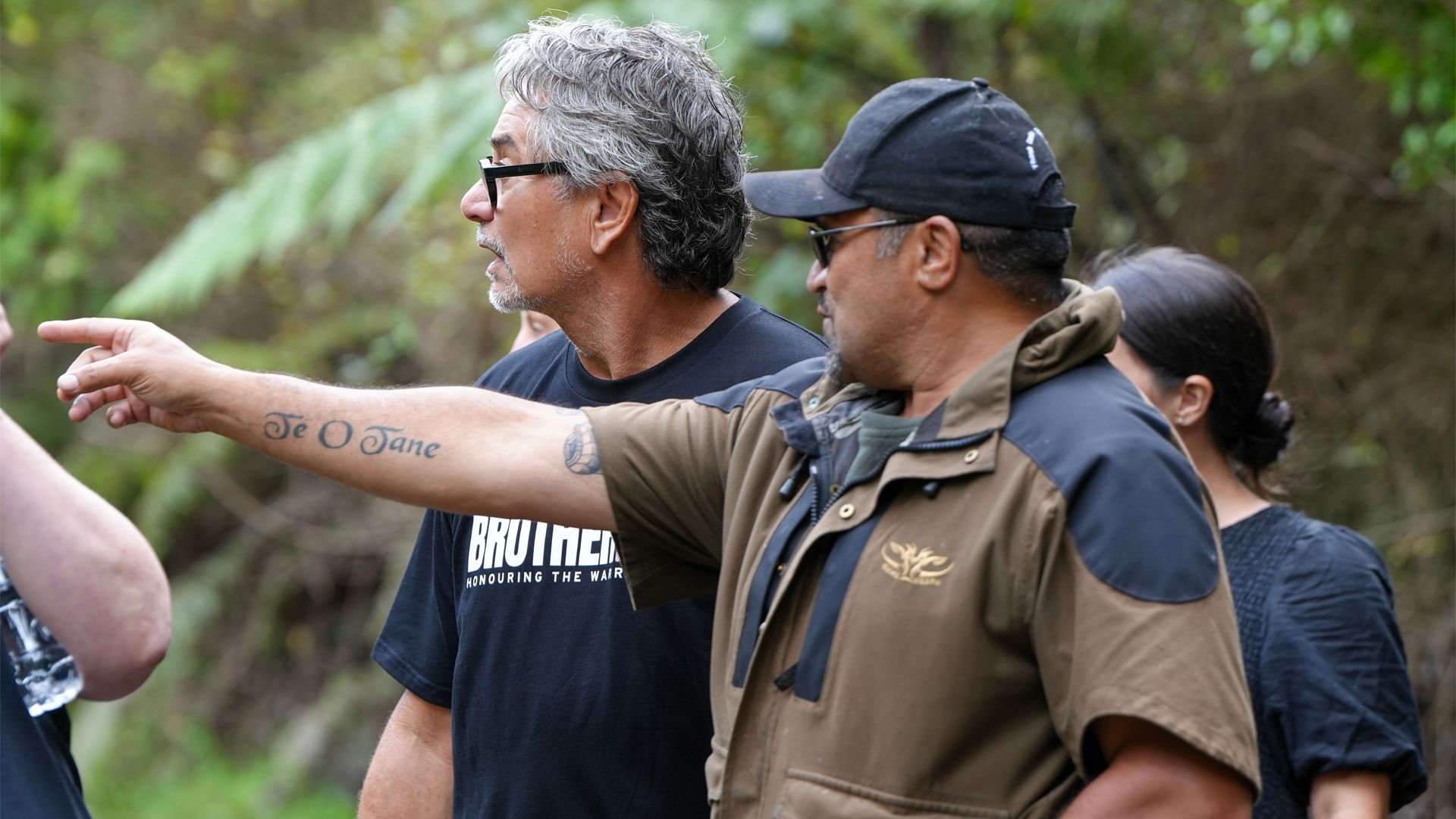


From the ocean to the mountains: Māori-led initiatives changing men’s lives
In 2024, Movember announced a NZD $63.2m investment into the health and wellbeing of Indigenous communities across Aotearoa, Australia, Canada, and the USA, to combat the health inequalities faced by Indigenous men.
Since last year’s announcement, Movember Aotearoa Indigenous Programs Manager, Chris Graham (Te Aupouri, Te Rarawa, Ngāpuhi), has been visiting Māori health organisations who applied for Movember’s Indigenous Social and Emotional Wellbeing Initiatives Grant. Chris reflected on his time with these organisations and their holistic community-driven approaches to Māori health.
Kia ora Chris, you had the opportunity to go through every organisations application — what stood out to you the most? What inspired you?
I guess what stood out to me the most, wasn’t just the resilience you’d expect from communities under stress or pressure, but their response to the adversity - their adaptation. The key to this adaptation doesn’t lie in theories or innovation or even technology, although they have a role to play, but from indigeneity. By returning to common, and in some cases ancient Indigenous practices and protocols, and weaving them into the current contexts, the applicants continue their legacy of navigation.
While there were a range of activities and methods offered across all the applications, the thread that connected them all was the connection to Te Ao Māori. As for inspiration, the rural communities excited me most, maybe because I’m currently a city rat. Again, it was the diverse range of what these organisations do that inspired me. Whether it was on the ocean with waka, up snowcapped mountains, or traversing ancestral trails and rivers – the chance to learn about yourself in these environments needs no advertising.
Can you tell me about visiting these Māori health organisations - what was that experience like and what did you take away from it?
So far, we have visited three sites as part of our initial contact. In each of the sites, the importance of Movember’s work came home to me. I don’t really have the words to describe how I felt, but I can say that they saw me, and I saw them. These programs are being run by men who are ‘the real face’ of men’s health, and they’re getting the job done. What excites them though, is our approach; that we have acknowledged their culture (Te Ao Māori), we are listening to what works for them, and we are willing to offer support that is responsive to their culture, principles, and practices.
Why do you personally think this funding is so important? What impact do you hope it will have on Indigenous men’s wellbeing in NZ?
From a personal perspective, what we are attempting to do is partner up. In relation to all Indigenous peoples globally, this is the first step towards reconciling the past. Furthermore, I believe it could be a template for others to follow, in contrast to what we see playing out in our media today. By reconnecting us all with the environment and with each other, we have the potential to reset our future, our beliefs, our values, our wants, and our needs – our behaviour. By starting with our own Indigenous men here, we will be able to see first-hand the benefits of considering a different world view.
At the end of the day’s learning with one of the programs, I sat with over 40 men on the shores of a muddy harbour, on a not-so-pleasant day, and with arms linked we had Karakia and meditated. Freezing workers, plumbers, builders, teachers, students, farmers, people looking for work, fathers, brothers, uncles – you name it. To complete the ritual, we swum out into the harbour as one. These are the moments where the impact is realised, when men start to believe in themselves, and have the courage to dream again, knowing that behind them stands a brotherhood.
When is the announcement on funding due to be made?
The Global Indigenous Advisory Council completed their site visits at the start of May, and are hoping to make the announcements sometime in the following months.
The successful Innovation Grant applicants across Aotearoa, Australia, Canada and the USA will receive a 3-year grant of up to NZD $750,000.
The successful Community Empowerment Grant applicants, a 5-year grant, worth up to NZD $3.5m, will go forward into the next phase of implementation planning in preparation for a 2026 start.
What excites you most about these initiatives?
What excites me most is not only being a part of these initiatives, but the willingness, we as Movember, are showing to support and learn from them.
Keep up to date with future Movember funding opportunities at, https://movember.com/about/funding.